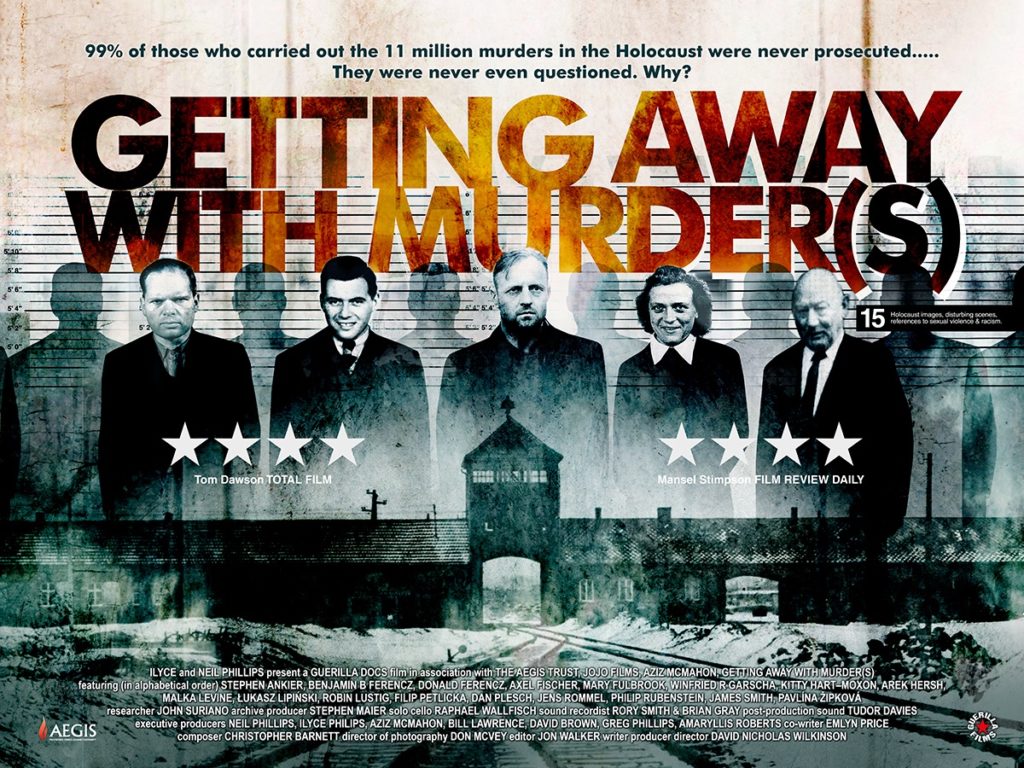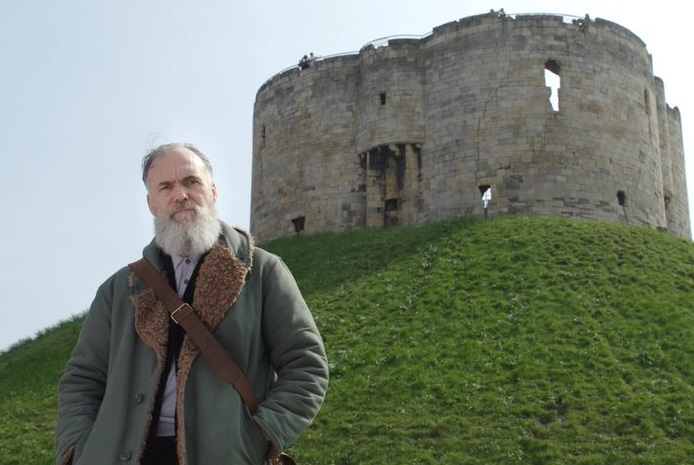
YORKSHIRE filmmaker David Wilkinson’s Holocaust documentary, Getting Away With Murder(s), has taken 18 years to reach the big screen.
Tonight, Everyman York, in Blossom Street, York, will host the world premiere at 6.30pm, concluding with a post-screening question-and-answer session with Wilkinson, chaired by Dave Taylor, the Independent city councillor for the Fishergate ward.
Exploring an overlooked aspect of the Holocaust, Wilkinson’s feature-length film reveals that “almost one million people in 22 countries willingly carried out the unprovoked murder of 11 million innocent men, women and children but 99 per cent of those responsible were never prosecuted”.
Examining the reasons behind the disregard for justice, Wilkinson says: “I filmed in ten countries, including the UK, where I question our turning a blind eye that allowed 400 alleged Nazi war criminals to live in this country, completely untroubled by justice.
“The only prosecution that ever occurred went ahead 53 years after the perpetrator’s arrival in London. He was sent to prison for murdering 18 Jews, although in reality, he was responsible for a great many more deaths.”
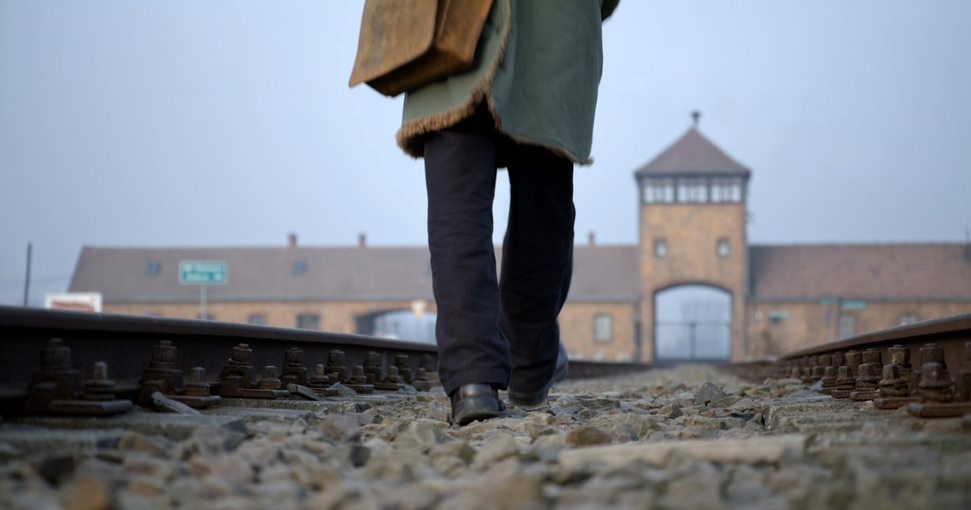
Wilkinson’s studies brought him to York. “In 1190, Britain inflicted its own Holocaust when York’s Jewish population were massacred while under the King’s protection.
“At a time of increasing attacks on Jews throughout England, they fled to the Castle – now the site of Clifford’s Tower – to be besieged by an incited angry mob, and then committed mass suicide rather than wait to be killed or be forcibly baptised. Those who did choose to be baptised and came out were slaughtered by the mob.”
York in the 21st century is a different place, notes Wilkinson, who is chairman of film-makers Guerilla Films. The city now commemorates the massacre at Clifford’s Tower annually, along with Holocaust Memorial Day, as it acknowledges these atrocities and works to ensure that they never happen again.
York was one of the first British cities to receive City of Human Rights status, while York City of Sanctuary seeks to promote an environment of compassion and understanding in the city and provides support and assistance to refugees and asylum seekers.
York Interfaith Group meets regularly to promote mutual understanding between all of York’s faith groups and helps promote mixed-faith events hosted by its members.
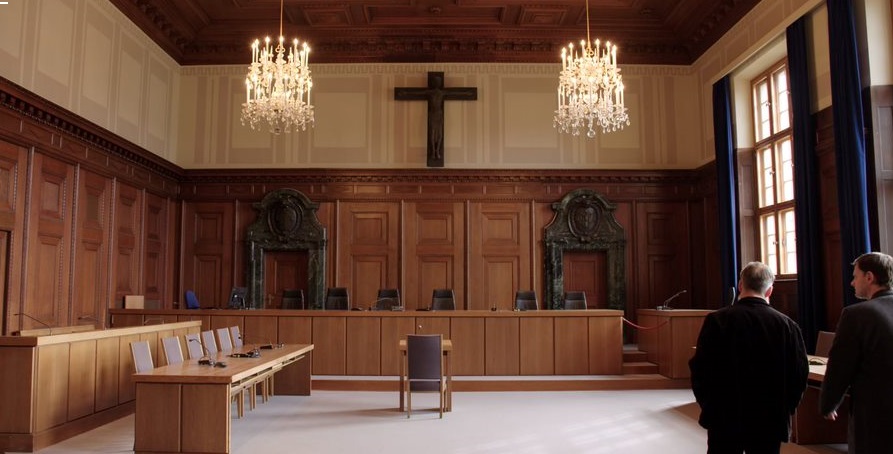
Wilkinson says York is an example of how a city can turn itself around and learn from events that happened within its walls almost 900 years ago, as well as from more recent history.
For many years, Jews thought that because of what happened at the Clifford’s Tower site, there was a ‘herem’ (ban) on Jews living in York. This was never the case and the relatively ‘new’ York Liberal Jewish Community (YLJC) is flourishing.
Celebrating its seventh birthday this year, and with around 100 members of all ages, YLJC is an active member in the York Interfaith Group and works regularly with other community and civic organisations.
YLJC is partnering with English Heritage and My Castle Gateway (for City of York Council) to achieve a new lasting legacy for the city’s history by seeking to influence the redevelopment plans of the car park at the base of Clifford’s Tower into a new public park.
The consultation plans include a small public plaza with a new memorial space to the 1190 massacre victims, yet to be detailed or funded.
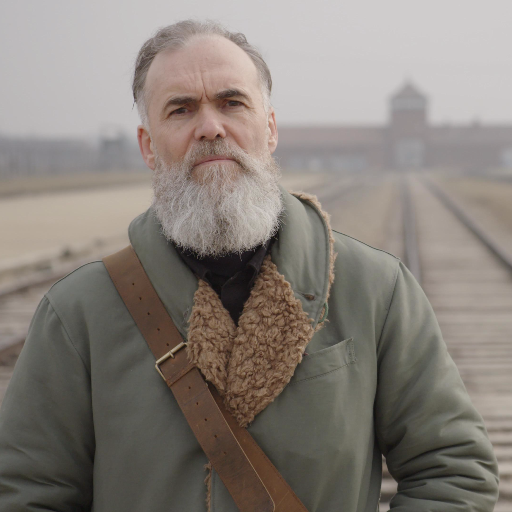
Wilkinson explains how this influenced his choice when deciding where Getting Away With Murder(s) should be launched: “Normally with the films I make, the world premieres are either in London or at one of the prestigious film festivals such as Sundance or Edinburgh.
“I have thought long and hard about where to hold the important first screening of this film. As a Yorkshireman I have always felt singularly uneasy that my own county city was the setting for such a horrific crime.
“Therefore, it seemed appropriate and particularly fitting to me that the city of York should be where I launch this film. It is an example of how a city and a Jewish community has and continues to move forward together.
“I am, therefore, delighted that the Everyman Cinema in York is supporting this important screening and that the York Liberal Jewish Communityhas agreed to co-host the event.”
Wilkinson ponders the possibility of York erecting a “deferential memorial” to what many consider to be the darkest day in the city’s history. “In the documentary, I filmed numerous reverential memorials to the murdered Jews, in Berlin, Vilnius, Kaunas, Liepaja, Günzburg, Dachau, Vienna and Auschwitz,” he says.
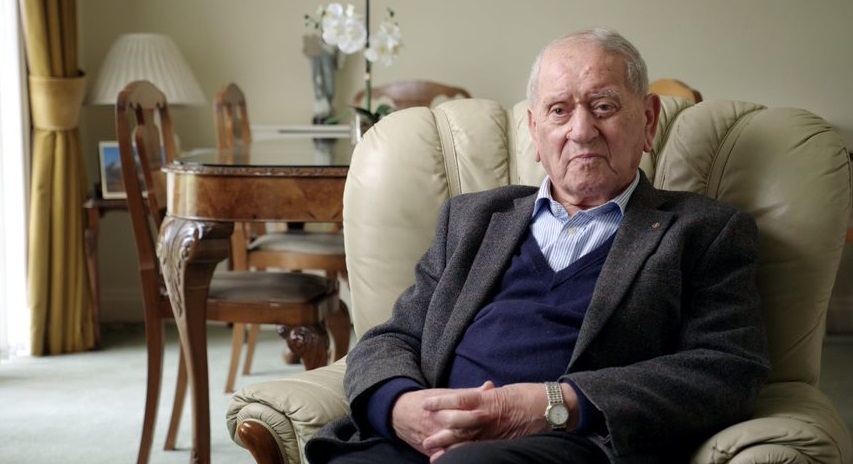
“The more locations I visited, the more I became convinced that York too should have its own deferential memorial to those Jews murdered in the city, no matter how long ago it took place.”
Lilian Coulson, chair of York Liberal Jewish Community, reflects on Wilkinson’s documentary: “When David approached us to discuss his film, we were amazed to be told about the extent of this ‘hidden’ part of all our history.
“On a personal level, coming from a Jewish family who had to flee Nazi Germany to survive and whose grandfather was one of many lawyers working at the Nuremburg Trials, I have always wondered why nothing was done earlier by the outside world to stop the genocide of 11 million people, including six million Jews.
“Or what happened subsequently to those people who implemented this genocide. I look forward to viewing David’s film at its world premiere in York to learn more about what has happened (or not) since the Nuremburg Trials finished 75 years ago.”
Lilian continues: “YLJC, as York’s only formal Jewish community, is delighted to welcome David and his film to this city and to help open doors to our friends here to promote his film to those who also wish to learn more about our more recent past.
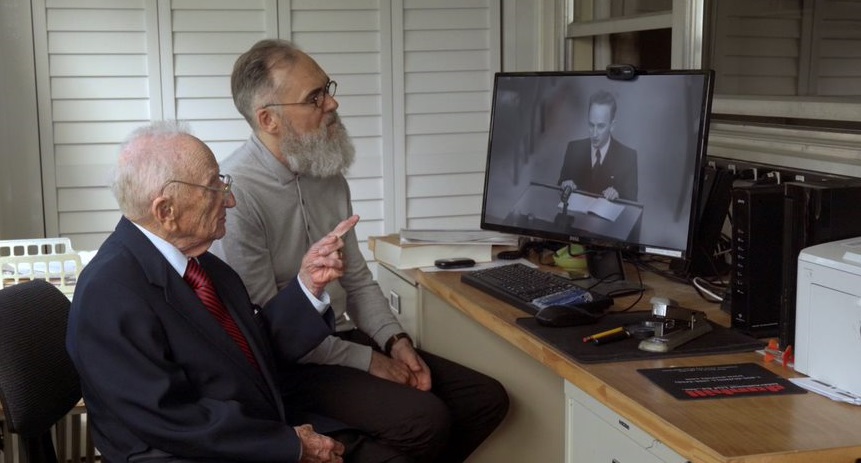
“We are lucky to live in a city that positively tries to encourage good interfaith relationships and tolerance and actively stretches out a hand to those in need. The continued dialogue of the proposed redevelopment of the Clifford’s Tower and Eye of York area provides a unique opportunity for us all to work together to commemorate its history and, at the same time, look positively to the city’s future.”
Wilkinson has great hopes that tonight’s screening could launch a campaign to raise money for an improved memorial for the 1190 victims, to be sited within a wider contemplative space, as being proposed for the English Heritage site under the My Castle Gateway plans.
“This could be undertaken in conjunction with York Liberal Jewish Community, who are already fundraising to employ the first resident rabbi in York since the Middle Ages, to help grow and develop their community,” he suggests.
“We hope that this will help in bringing about a successful outcome and that, after 831 years, the memory of those 150 people massacred inYork will be respectfully and informatively remembered.”
For tickets for tonight’s world premiere, go to: everymancinema.com.
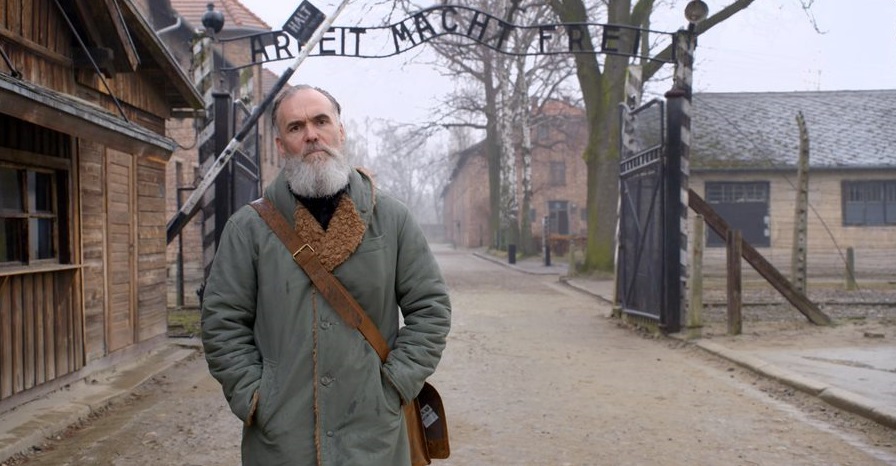
Director’s statement by David Wilkinson
“I HAVE been trying to make Getting Away With Murder(s), either as a film or a TV series, since 2003.
I was baffled as to why it has taken so long to find the funding as, to me, it was essential to know why so very few of the murderers of the Holocaust were ever prosecuted.
I had hoped that others would also wish to know this answer.
When I was distributing his film Talking Sides in 2003, I discussed this in great detail with Sir Ronald Harwood as we drove around the country promoting his movie in key cities.
Ronnie wrote over a dozen plays, films, books and articles dealing with the Holocaust and told me that it “informed him”. When I mentioned to him that I was considering making the film, he instructed me to get on with it as he too wanted to know the answer.
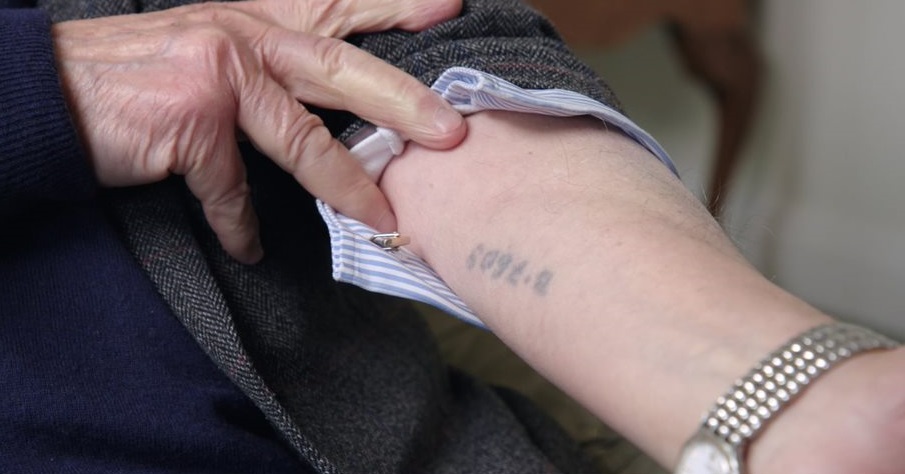
It was intended that he be in the film (he later appeared in another documentary of mine), but his contribution in this was sadly not to be.
The film is dedicated to him.
My sole motivation for making Getting Away With Murder(s) was simply to find that answer as to why so many got away with their crime – the crime of mass murder on an industrial scale.
A simple question, you might think.
I knew long before I began filming that the answer(s) would be far from simple.
The film is almost 200 minutes long. The subject is so complex that I found it impossible to fit the answers into a neat 90 or 110 minutes. One of the advantages of not having any funding from a broadcaster means that I was free to explore the subject as I felt in detail.”
